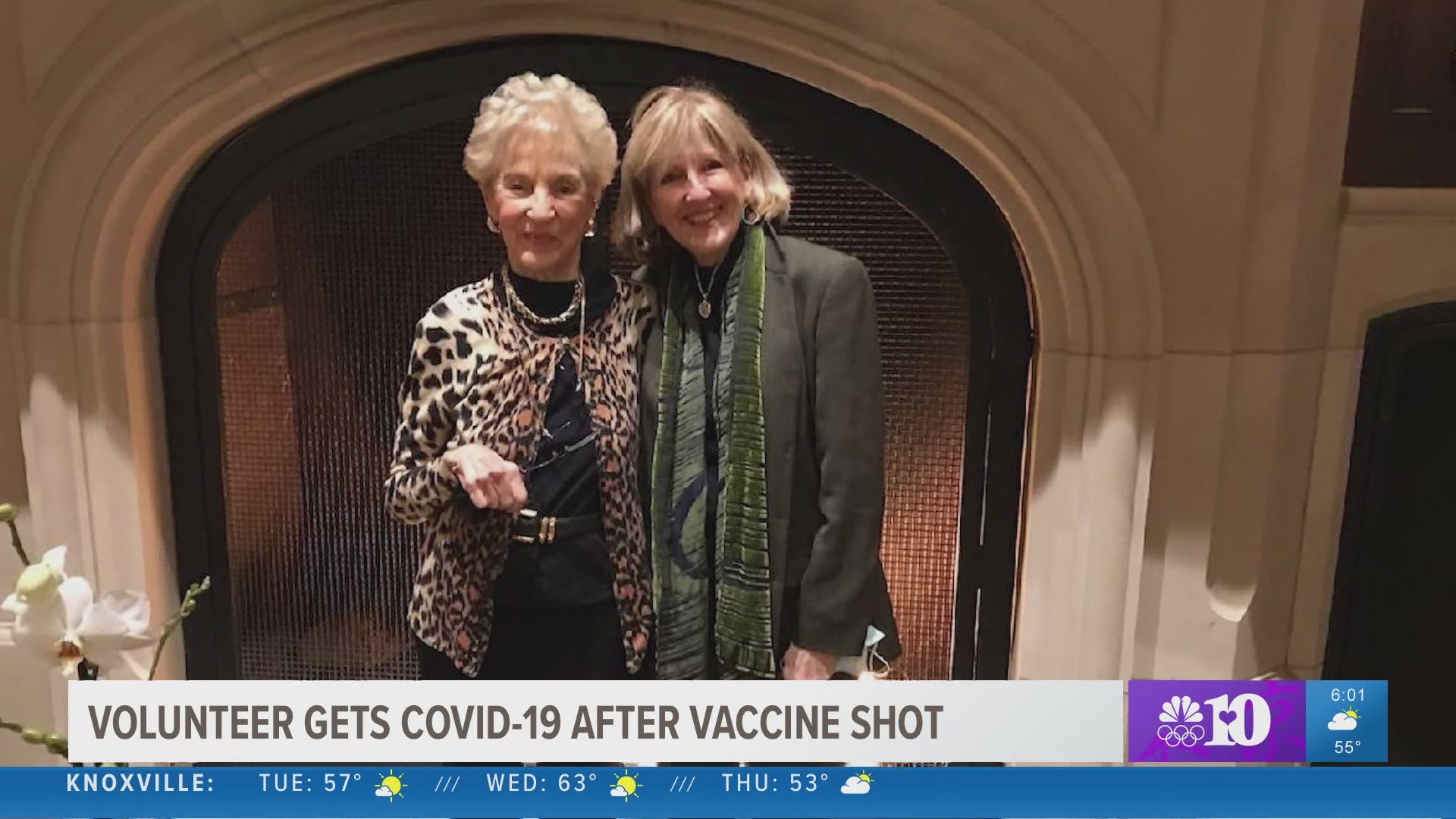KNOXVILLE, Tenn. — Carol Ottaviano is a volunteer for the Pfizer COVID-19 vaccine trial. She rolled up her sleeves for both shots last September ( show card).
"More than anything, I was interested in knowing what a clinical trial was. I knew it was a 50/50 shot of if I would get the real deal or not, and also just wanting to do something for the common good," Ottaviano said.
When the telltale side effects of the vaccine kicked in, she suspected she got the “real deal.” In December, researchers confirmed her hunch.
She said she felt a new sense of security, pretty confident she was protected from COVID-19.
In January, a trip to Texas proved to be a reality check. Her father was in his final days so she gathered with friends and family.
A couple of days later she started suffering from a stomach ache and low-grade fever. She went to get tested because she had been around her sister, her husband and her 90-year-old mother.
"The next day I got the phone call that you don’t want to get that said, ‘You’ve got COVID.' So I was shocked. I said, 'Are you sure about that result?' and they said, 'Yes,'" Ottaviano said.
Ottaviano is one of a small group of people to test positive for COVID-19 after getting the 95% effective Pfizer vaccines.
Research reveals people who have been vaccinated but still develop COVID-19 will likely have minimal to no symptoms.
"This fact that you can be vaccinated and still get COVID, but with minimal symptoms or no symptoms, is one of the reasons that all the public health authorities are saying, keep wearing your mask, keep social distancing. And here is a perfect example of why that's so important," Dr. Bill Smith said.
Smith heads up several COVID-19 vaccine trials in Knoxville, including the Pfizer study. He said these studies are essential.
"We’re collecting this data over the next couple of years because we don’t know how long it’s going to last. We will continue to get information about its effectiveness against variants as these arise. We’re going to continue to get any information on any unexpected delayed side effects that we don’t know about at this point," Smith said.
Ottaviano never expected to be among the 5% but is grateful she didn’t pass COVID-19 on to her family
"I think that this is a warning that, you know, yes, you can still get it. But most likely, it will be a mild case. You won’t most likely be in the hospital with it, and hopefully, the people around you will be less likely to get it. So there’s always a bright spot to every story, and I think that’s what I would say about this one," Ottaviano said.

